Symptoms of Wisdom Tooth Infection
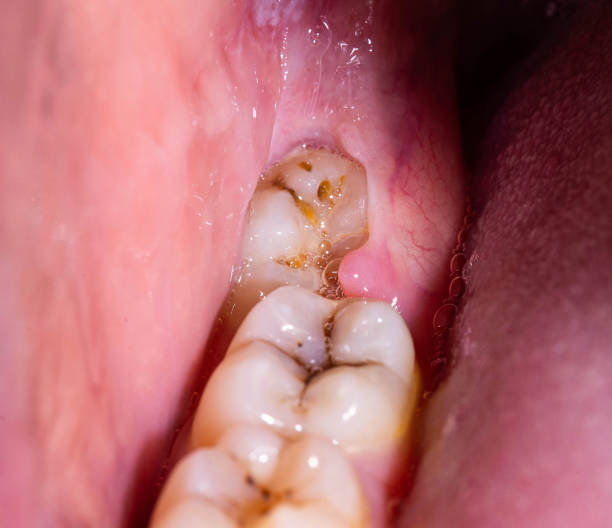
Wisdom tooth infection occurs when disease enters a wisdom tooth, its gum or pores caused due to bad growth leading to other dental complications.
Wisdom teeth, also known as third molars, are the last set of molars to develop in the back of your mouth. Most people have four wisdom teeth, one on each side of the upper and lower jaw.
These teeth usually emerge between the ages of 17 and 25, although some people may never develop them at all.
Wisdom teeth can sometimes cause problems if they don’t have enough room to grow or if they grow at an awkward angle, which can lead to pain, infection, and other dental issues. As a result, they may need to be removed through a dental procedure.
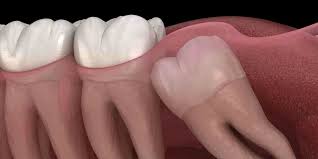
In This Article
Causes of Wisdom Tooth Infection
- Impaction or partial eruption of wisdom teeth
- Trauma or injury to the tooth or surrounding tissues
- Poor oral hygiene or dietary habits
- Weakened immune system
- Pre-existing gum disease or tooth decay
Read Also: Dental Caries: Symptoms, Treatment and Prevention
Impaction or partial eruption of wisdom teeth:
When wisdom teeth do not fully emerge from the gum line, they can become impacted or trapped beneath the gum tissue.
Impacted wisdom teeth can create a space between the tooth and the gum, which can become a breeding ground for bacteria and cause an infection.
Trauma or injury to the tooth or surrounding tissues:
Any damage to the wisdom teeth or the surrounding tissues can create an entry point for bacteria and increase the risk of infection.
Trauma or injury can occur during dental procedures or from accidental bites, falls, or other physical impacts.
Poor oral hygiene or dietary habits:
Poor oral hygiene can lead to the buildup of plaque and bacteria in the mouth, which can increase the risk of infection.
Additionally, a diet high in sugar and processed foods can contribute to poor oral health and increase the risk of infection.
Weakened immune system:
A weakened immune system, whether due to a pre-existing medical condition or medication use, can make the body more susceptible to infections, including those in the mouth.
Pre-existing gum disease or tooth decay:
Gum disease and tooth decay can create an environment in the mouth that is conducive to bacterial growth and infection. If left untreated, these conditions can lead to the development of an infected wisdom tooth.
Common Symptoms of Wisdom Tooth Infection
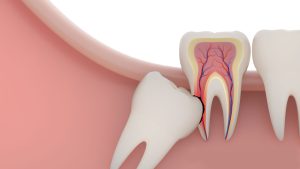
- Pain and tenderness in the affected area
- Swelling and redness of the gums
- Difficulty opening the mouth or swallowing
- Foul taste or smell in the mouth
- Fever and swollen lymph nodes
- Headache or earache
- Wounds on the inner cheek
Pain and tenderness in the affected area
You will feel discomfort, throbbing or sharp pain in the area around the affected wisdom tooth. This is accompanied by tenderness when touching or applying pressure to the affected area.
Swelling and redness of the gums
You notice your gums around the infected wisdom tooth are swollen and red. This can cause discomfort and sensitivity when eating, drinking or brushing teeth.
Difficulty opening the mouth or swallowing
The swelling and inflammation caused by a wisdom tooth infection can make it difficult to open your mouth fully or swallow food or saliva without discomfort.
Foul taste or smell in the mouth
An infected wisdom tooth can release a foul taste or smell in your mouth. This can be caused by the presence of pus or other fluids that are released as a result of the infection.
Fever and swollen lymph nodes
A wisdom tooth infection can cause your body to react with a fever and swollen lymph nodes. This is a sign that your body is fighting off the infection.
Headache and earache
In some cases, a wisdom tooth infection can cause headaches or earaches. This is because the infection can spread to the surrounding tissues and cause discomfort in these areas.
Problems with Wisdom Tooth
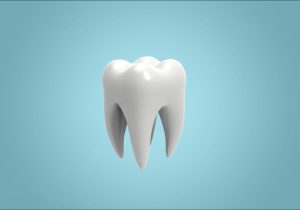
- Impaction
- Difficulty in brushing
- pericoronitis
- Development of abscesses or cysts
- Sinus problems or ear infections
- Systemic infections or sepsis
Impaction
Some wisdom teeth can emerge through the gums without any issues.
Some others grow in at an angle and push into and damage the gums or the adjacent teeth and nerves, resulting in a condition known as impaction.
Difficulty in brushing
Impacted wisdom teeth can be quite painful and can lead to infection. Brushing these teeth is quite a task.
pericoronitis
Food and bacteria easily get trapped between the wisdom tooth and the neighbouring tooth, causing and spreading tooth decay, and gum infection to nearby teeth, gums, or jawbone which is known as pericoronitis.
Crowded wisdom teeth rub heavily on the cheek scratching, causing wounds on the inner cheek as well as discomfort while chewing.
Development of abscesses or cysts
When a wisdom tooth is impacted, it can create a pocket of space between the tooth and the gum, which can trap food particles, bacteria, and other debris.
This can lead to the development of an abscess, which is a pus-filled pocket that can cause pain, swelling, and infection.
If an abscess isn’t treated promptly, it spreads to the surrounding tissues and even to other parts of the body, causing serious health complications. Impacted wisdom teeth also cause the development of cysts, which are fluid-filled sacs that form around the tooth.
Cysts can cause damage to the surrounding teeth and bone, and they also lead to infection and other dental problems if left untreated.
Sinus problems or ear infections
The roots of the upper wisdom teeth are located near the sinuses and sometimes extend into them. If an upper wisdom tooth becomes infected or inflamed, it causes pressure and pain in the sinus area, leading to sinus headaches or sinus infections.
In addition, the lower wisdom teeth are located close to the ear canal, and if they become infected, they can cause pain and discomfort in the ear. This results in ear infections or earaches, which are very uncomfortable.
Systemic infections or sepsis
One of the most severe problems associated with wisdom teeth is the potential for systemic infections or sepsis. This occurs when an infection from a wisdom tooth spreads to other parts of the body through the bloodstream, causing a widespread infection throughout the body.
If left untreated, systemic infections or sepsis can lead to life-threatening complications, such as septic shock or organ failure. Symptoms of systemic infections or sepsis may include fever, chills, rapid heart rate, confusion, and difficulty breathing.
If there isn’t enough space in your mouth for your wisdom teeth to grow correctly, or if you’re experiencing pain, infection, or damage to your other teeth, your dentist will suggest extracting your wisdom teeth early to prevent future complications. Complications of Wisdom Tooth Infections
Diagnosis and Treatment of Wisdom Tooth Infections
When a patient presents with symptoms of a wisdom tooth infection, such as pain, swelling, redness, or fever, a dental exam is usually the first step in diagnosing the problem.
During the exam, the dentist or oral surgeon will examine the mouth, gums, and teeth to identify any signs of infection or inflammation.
They may also use special instruments to check for pockets of pus, which can be a sign of an abscess.
Dental exam and X-rays
X-rays are often used to get a more detailed view of the wisdom teeth and surrounding structures.
A panoramic X-ray, which shows a wide view of the entire mouth, is commonly used to evaluate the position of the wisdom teeth and detect any potential problems, such as impaction or overcrowding.
A periapical X-ray, which shows a detailed view of the tooth and its roots, can help identify the extent of the infection and determine the best course of treatment.
Based on the results of the dental exam and X-rays, the dentist or oral surgeon may recommend one or more treatment options.
In cases of mild to moderate infection, antibiotics and pain medication may be prescribed to help manage symptoms and prevent the infection from spreading.
If the infection is more severe, the wisdom tooth may need to be extracted to remove the source of the infection and prevent it from recurring.
Antibiotics, pain relievers, or other medications
Depending on the severity of the infection, antibiotics may be prescribed to help eliminate the bacteria causing the infection and prevent it from spreading to other parts of the body.
Pain relievers are also commonly used to manage the discomfort associated with wisdom tooth infections. Over-the-counter pain relievers such as ibuprofen or acetaminophen can help reduce pain and inflammation.
If the pain is severe, a healthcare provider may prescribe a stronger pain reliever or recommend a combination of medications to manage the symptoms.
In some cases, other medications may be used to treat specific symptoms associated with wisdom tooth infections.
For example, an antiseptic mouthwash may be recommended to help reduce bacteria in the mouth and promote healing
Drainage of abscesses or cysts
In some cases, the infection may be able to clear up with the use of antibiotics and other medications. However, if the abscess or cyst does not respond to treatment, drainage may be necessary. This procedure involves making a small incision in the affected area to allow the fluid to drain out.
Drainage of abscesses or cysts is typically performed by a dental professional, such as a dentist or oral surgeon.
The procedure may be performed using local anaesthesia to numb the area around the affected tooth.
Once the area is numb, a small incision is made to allow the fluid to drain out. The area may then be flushed with saline solution to help remove any remaining debris or bacteria.
Extraction of infected or impacted teeth
Extraction of infected or impacted wisdom teeth is typically performed by a dental professional, such as a dentist or oral surgeon.
The procedure may be performed using local anaesthesia to numb the area around the affected tooth, or in some cases, general anaesthesia may be used.
During the procedure, the dental professional will make an incision in the gums to access the affected tooth.
The tooth may need to be cut into smaller pieces to make it easier to remove. Once the tooth is removed, the area may be sutured closed to promote healing.
Follow-up care and prevention tips
After treatment for a wisdom tooth infection, it is important to follow up with your dental professional for proper care and to prevent future infections. Here are some follow-up care and prevention tips to keep in mind:
- Attend follow-up appointments: Your dental professional may schedule a follow-up appointment to check on the healing process and ensure that the infection has cleared up. It is important to attend these appointments to prevent any further complications.
- Practice good oral hygiene: Brush your teeth at least twice a day and floss daily to remove plaque and bacteria from your mouth. This can help prevent future infections.
- Rinse with salt water: Rinse your mouth with warm salt water several times a day to help reduce swelling and promote healing.
- Avoid smoking: Smoking can increase the risk of infection and delay the healing process. If you smoke, it is important to quit or reduce your smoking to promote healing.
- Follow a soft food diet: Eat soft foods for a few days after the procedure to avoid irritating the area and to promote healing.
- Take medications as directed: If you were prescribed antibiotics or pain relievers, be sure to take them as directed by your dental professional.
- Consider prophylactic extraction: If your wisdom teeth are causing issues or if you have a history of infections, your dental professional may recommend prophylactic extraction as a preventive measure to avoid future infections.
Conclusion
In conclusion, wisdom tooth infections can cause a range of uncomfortable symptoms, including pain, swelling, and difficulty eating and drinking.
It is important to seek medical attention promptly if you suspect you may have an infection, as untreated infections can lead to more serious health issues. Good oral hygiene practices, including regular brushing and flossing, can help prevent wisdom tooth infections from developing in the first place.
Additionally, visiting a dentist for regular check-ups can ensure that any potential issues with your wisdom teeth are caught early and addressed before they become more serious.
By staying informed about the symptoms of wisdom tooth infections and taking proactive steps to protect your oral health, you can help ensure that you maintain a healthy, pain-free smile for years to come.


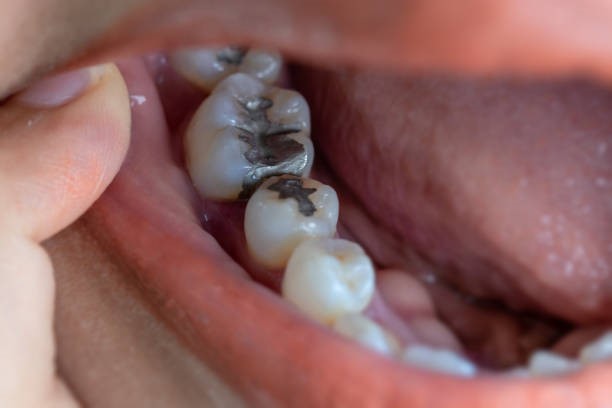
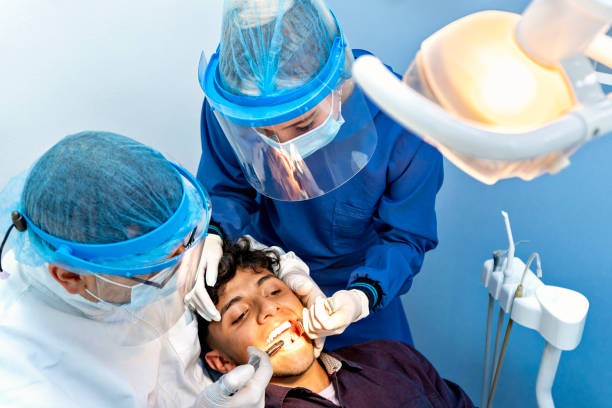
2 Comments